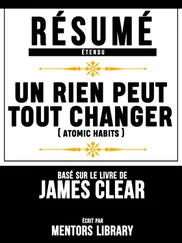Over time, people began to connect watching ABC with feeling relaxed and entertained. If you drink red wine and eat popcorn at 8 p.m. every Thursday, then eventually “8 p.m. on Thursday” means relaxation and entertainment. The reward gets associated with the cue, and the habit of turning on the television becomes more attractive.
You’re more likely to find a behavior attractive if you get to do one of your favorite things at the same time. Perhaps you want to hear about the latest celebrity gossip, but you need to get in shape. Using temptation bundling, you could only read the tabloids and watch reality shows at the gym. Maybe you want to get a pedicure, but you need to clean out your email inbox. Solution: only get a pedicure while processing overdue work emails.
Temptation bundling is one way to apply a psychology theory known as Premack’s Principle. Named after the work of professor David Premack, the principle states that “more probable behaviors will reinforce less probable behaviors.” In other words, even if you don’t really want to process overdue work emails, you’ll become conditioned to do it if it means you get to do something you really want to do along the way.
You can even combine temptation bundling with the habit stacking strategy we discussed in Chapter 5 to create a set of rules to guide your behavior.
The habit stacking + temptation bundling formula is:
After [CURRENT HABIT], I will [HABIT I NEED].
After [HABIT I NEED], I will [HABIT I WANT].
If you want to read the news, but you need to express more gratitude:
After I get my morning coffee, I will say one thing I’m grateful for that happened yesterday (need).
After I say one thing I’m grateful for, I will read the news (want).
If you want to watch sports, but you need to make sales calls:
After I get back from my lunch break, I will call three potential clients (need).
After I call three potential clients, I will check ESPN (want).
If you want to check Facebook, but you need to exercise more:
After I pull out my phone, I will do ten burpees (need).
After I do ten burpees, I will check Facebook (want).
The hope is that eventually you’ll look forward to calling three clients or doing ten burpees because it means you get to read the latest sports news or check Facebook. Doing the thing you need to do means you get to do the thing you want to do.
We began this chapter by discussing supernormal stimuli, which are heightened versions of reality that increase our desire to take action. Temptation bundling is one way to create a heightened version of any habit by connecting it with something you already want. Engineering a truly irresistible habit is a hard task, but this simple strategy can be employed to make nearly any habit more attractive than it would be otherwise.
Chapter Summary
The 2nd Law of Behavior Change is make it attractive.
The more attractive an opportunity is, the more likely it is to become habit-forming.
Habits are a dopamine-driven feedback loop. When dopamine rises, so does our motivation to act.
It is the anticipation of a reward—not the fulfillment of it—that gets us to take action. The greater the anticipation, the greater the dopamine spike.
Temptation bundling is one way to make your habits more attractive. The strategy is to pair an action you want to do with an action you need to do.
9 The Role of Family and Friends in Shaping Your Habits
IN 1965, a Hungarian man named Laszlo Polgar wrote a series of strange letters to a woman named Klara.
Laszlo was a firm believer in hard work. In fact, it was all he believed in: he completely rejected the idea of innate talent. He claimed that with deliberate practice and the development of good habits, a child could become a genius in any field. His mantra was “A genius is not born, but is educated and trained.”
Laszlo believed in this idea so strongly that he wanted to test it with his own children—and he was writing to Klara because he “needed a wife willing to jump on board.” Klara was a teacher and, although she may not have been as adamant as Laszlo, she also believed that with proper instruction, anyone could advance their skills.
Laszlo decided chess would be a suitable field for the experiment, and he laid out a plan to raise his children to become chess prodigies. The kids would be home-schooled, a rarity in Hungary at the time. The house would be filled with chess books and pictures of famous chess players. The children would play against each other constantly and compete in the best tournaments they could find. The family would keep a meticulous file system of the tournament history of every competitor the children faced. Their lives would be dedicated to chess.
Laszlo successfully courted Klara, and within a few years, the Polgars were parents to three young girls: Susan, Sofia, and Judit.
Susan, the oldest, began playing chess when she was four years old. Within six months, she was defeating adults.
Sofia, the middle child, did even better. By fourteen, she was a world champion, and a few years later, she became a grandmaster.
Judit, the youngest, was the best of all. By age five, she could beat her father. At twelve, she was the youngest player ever listed among the top one hundred chess players in the world. At fifteen years and four months old, she became the youngest grandmaster of all time—younger than Bobby Fischer, the previous record holder. For twenty-seven years, she was the number-one-ranked female chess player in the world.
The childhood of the Polgar sisters was atypical, to say the least. And yet, if you ask them about it, they claim their lifestyle was attractive, even enjoyable. In interviews, the sisters talk about their childhood as entertaining rather than grueling. They loved playing chess. They couldn’t get enough of it. Once, Laszlo reportedly found Sofia playing chess in the bathroom in the middle of the night. Encouraging her to go back to sleep, he said, “Sofia, leave the pieces alone!” To which she replied, “Daddy, they won’t leave me alone!”
The Polgar sisters grew up in a culture that prioritized chess above all else—praised them for it, rewarded them for it. In their world, an obsession with chess was normal. And as we are about to see, whatever habits are normal in your culture are among the most attractive behaviors you’ll find.
THE SEDUCTIVE PULL OF SOCIAL NORMS
Humans are herd animals. We want to fit in, to bond with others, and to earn the respect and approval of our peers. Such inclinations are essential to our survival. For most of our evolutionary history, our ancestors lived in tribes. Becoming separated from the tribe—or worse, being cast out—was a death sentence. “The lone wolf dies, but the pack survives.”*
Meanwhile, those who collaborated and bonded with others enjoyed increased safety, mating opportunities, and access to resources. As Charles Darwin noted, “In the long history of humankind, those who learned to collaborate and improvise most effectively have prevailed.” As a result, one of the deepest human desires is to belong. And this ancient preference exerts a powerful influence on our modern behavior.
We don’t choose our earliest habits, we imitate them. We follow the script handed down by our friends and family, our church or school, our local community and society at large. Each of these cultures and groups comes with its own set of expectations and standards—when and whether to get married, how many children to have, which holidays to celebrate, how much money to spend on your child’s birthday party. In many ways, these social norms are the invisible rules that guide your behavior each day. You’re always keeping them in mind, even if they are at the not top of your mind. Often, you follow the habits of your culture without thinking, without questioning, and sometimes without remembering. As the French philosopher Michel de Montaigne wrote, “The customs and practices of life in society sweep us along.”
Читать дальше




![Джеймс Клир - Атомные привычки [Как приобрести хорошие привычки и избавиться от плохих]](/books/403243/dzhejms-klir-atomnye-privychki-kak-priobresti-horosh-thumb.webp)



